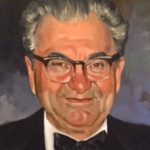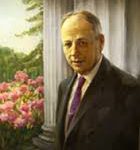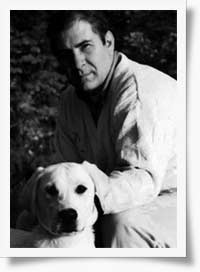 The story of Bob Macauley and Operation Babylift is the stuff of legends but there is a part of the story that’s rarely told.
The story of Bob Macauley and Operation Babylift is the stuff of legends but there is a part of the story that’s rarely told.
It begins on April 4, 1975, near the end of the Vietnamese war. A C5A Galaxy cargo plane takes off from Saigon with 243 orphans on board. Forty miles out of Saigon, an explosion blows off the rear door. The flight controls are crippled. Decompression fills the plane with fog and debris.
Somehow, the pilots manage to turn the plane around and head back to Saigon. The damaged plane crashes two miles from Tan Son Nhut airport. It skids a thousand feet, bounces up in the air, hits a dike half a mile away, and shatters into a hundred pieces.
Half of the children on board are killed immediately. Many of the survivors are critically injured. They are desperately in need of medical attention.
Half a world away in Virginia, a private citizen, Bob Macauley, hears about the tragedy. He is shaken by the loss of so many young lives and shocked to learn the military will not be able to rescue the survivors for ten days.
Bob cannot stand by and wait that long. “Many would have died,” he says.
For Macaluey, that thought is unbearable. He considers his options and decides to roll the dice. His solution is risky and might blow up in his face, but he knows it is the only way he can help.
Bob begins by contacting the airlines looking for a plane he can charter. Never mind it’s never been done before. Never mind he would be sending a commercial plane into a war zone. Never mind his business is running in the red, struggling to stay afloat, and desperately needs all his attention. Some things are more important than others. He hears the children cry in his heart. He has to do something.
Finally, Pan Am agrees to take a plane in the Philippines out of service and send it to Saigon. They want a quarter of a million dollars, ten percent down. Bob is quick to agree and sends them a bum check for the deposit. Two days later when the plane has landed, Pan Am comes looking for their money. By then, Bob has mortgaged his house to cover the debt.
Bob’s wife, Leila, remembers hearing about it when the TV crews show up at her front door asking if they can take pictures.
“What’s this about the house?” she asks Bob when he gets home.
Overshadowed by this act of human solidarity and embed in it is the story of the Carnie twins – dubbed “Hansel and Gretel” by a German nurse who cared for them the orphanage.
On the date of the fatal flight, infants filled the center of the plane. They had been loaded on the C5A in two-foot-square cardboard boxes. Each box contained a precious cargo of two or three infants. Toddlers, like the Carnie twins, were strapped to hard aluminum benches on each side of the aircraft.
In the rush of departure, the twins had been loaded onto different parts of the plane. After the plane went down, neither could be found. The initial report was that both had perished.
But somehow they had not only survived, they had found each other. Rescuers stumbled on them clinging together in a rice paddy more than a hundred yards from the crash site.
On a level we cannot define, Hansel and Gretel knew they needed each other. On the same level, for the same reason, Bob Macauley felt he had to rescue a hundred children he had never met and would never know.
What Bob and these children intuitively knew and we must come to learn – particularly at contentious times like these – is that we need each other. Humanity is indivisible. All of our lives are intertwined and wrapped around each other. The contribution others have made to our lives is reflected in all we think and do. So tightly knitted are our lives that there would be little left of any of us if we were to discard what we owe to others.
It is for this reason that the world rarely makes sense from a personal point of view. There is no adequate explanation in personal terms for the differences between us. Why do some have so much and others so little? Why must some struggle when others have lives of such ease? Why are some so blessed and others so challenged?
The world only makes sense with detachment and distance. From a distance, we can see how the pieces fit. With detachment, we see that what happens to one more often than not is for the benefit of another.
In the words of Luciano de Crescenzo, “We are each of us angels with only one wing; and can only fly while embracing each other.”
 I distinctly remember the moment I looked down and saw my father’s hand coming out of my sleeve. Until then, I had always thought I was my Mother’s son. Since then, I have found myself thinking I am becoming more and more like my Dad every day.
I distinctly remember the moment I looked down and saw my father’s hand coming out of my sleeve. Until then, I had always thought I was my Mother’s son. Since then, I have found myself thinking I am becoming more and more like my Dad every day.




